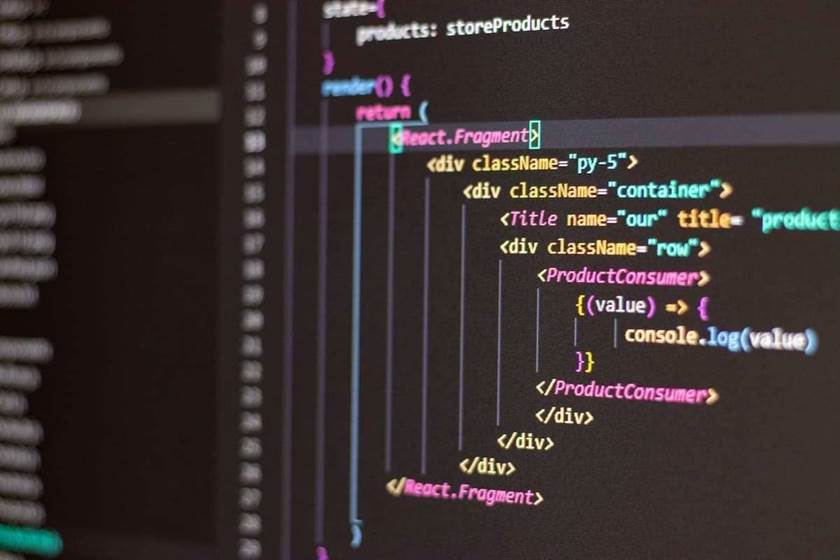
Often, an image is based on another image, with some additional customization. The Docker daemon listens for Docker API requests and manages Docker what is docker in software development objects such as images, containers, networks, and volumes. A daemon can also communicate with other daemons to manage Docker services.

Innovate by collaborating with team members and other developers and by easily publishing images to Docker Hub. Accelerate how you build, share, and run modern applications. The Docker container image includes only what your app needs to run. If your app makes use of nginx and Node.js, the container image will include them, but you won’t be burdened with all the other userland apps you’d generally find on Linux.
We expose the ports so that we can reach the web server and Adminer inside the containers. We also map our local source code into the running container to make changes in our text editor and have those changes picked up in the container. Enterprise development work is notorious for being hidebound and slow to react to change. Enterprise developers chafe against such constraints all the time—the limitations imposed on them by IT, the demands made of them by the business at large. If you containerize an existing app, that can reduce its resource consumption and make it easier to deploy. But it doesn’t automatically change the design of the app, or how it interacts with other apps.

Docker containers provide a way to get a grip on software. You can run your Docker container on any OS-compatible host that has the Docker runtime installed. In this module, we’ll walk through setting up a local development environment for the application we built in the previous modules. We’ll use Docker to build our images and Docker Compose to make everything a whole lot easier. Docker streamlines the development lifecycle by allowing developers to work in standardized environments using local containers which provide your applications and services.
The ’-t’ option allows you to define the name of your image. In our case we have chosen ’python-test’ but you can put what you want. # We need to define the command to launch when we are going to run the image. # The second parameter ‘/’ is the path where to put the file on the image. # The first parameter ‘main.py’ is the name of the file on the host.
When you’re ready, deploy your application into your production environment, as a container or an orchestrated service. This works the same whether your production environment is a local data center, a cloud provider, or a hybrid of the two. Docker can also save you money if you’d like to run multiple apps on a single VPS.
Nonetheless, Docker is a potential security issue, as it normally runs as root and could be exploited to run malicious software. You can run a command in a container using docker exec my-container my-command. This is useful when you want to manually invoke an executable that’s separate to the container’s main process. You can run your own registry if you need private image storage. Several third-party services alsooffer Docker registries as alternatives to Docker Hub.

Many of these issues can be resolved by being better at pairing and writing better docs. You don’t need to use the sudo command as you’ve logged in to the Docker shell as the root user. As you can see from the output, this is the LTS version of Ubuntu released in 2022. Thanks to the power of Docker, we can run Ubuntu in Docker using very minimal system resources. If you don’t have Docker installed, follow our guide on installing Docker on Ubuntu.
One way to do it, is by downloading the application image used in production and running the container locally. The development environment is the exact same as the production environment. You might notice that your services are running/launching at extremely slow as compared to when you launch them without docker-compose.
However, just know it exists and that you can use it to tailor the containers to your needs. It allows users to create independent and isolated environments to launch and deploy its applications. Docker gives you everything you need to work with containers.
If this is not possible due to errors, it would print an error message instead. I’ve worked for many companies over the years since I’m in the field of consulting/contracting. It allowed me to see how teams do things differently and the pros/cons of each approach. In this blog, I want to share some of my observations on using Docker for local development. Docker is the most-loved programming tool according to Stack Overflow’s 2022 and 2023 developer survey.
Similarly, I think it’s the same with using Docker for local development. Most of the time, the repo or app architecture shouldn’t be that complex where Docker is necessary. However it has its own limitations as we won’t be able to run multiple microservices together due to port issues in our scripts. So this would be an ideal solution for us where we’ll have multiple docker containers running in isolation. If you are using .docker/docker-compose.yaml, we move it to ../compose-dev.yaml. If you are using .docker/config.json, we create a ../compose-dev.yaml file with a single service named “app”.
Wanting to delve deeper into the topic – specifically how frozen thinking can impact a senior software developer – I did what I’ve done my whole career and started Googling. But I didn’t find anything very satisfactory, so in the spirit of breaking out of frozen thinking, I started a discussion with GPT-4. That discussion https://www.globalcloudteam.com/ was the foundation for this blog post. As a long-time software developer, I often find myself pulling from experience when making decisions. I know something has worked well in the past, so it must be a good decision this time too. But as I read about frozen thinking, I wondered if I might have a blind spot.